People
Academic staff
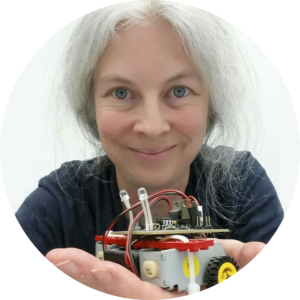 Barbara Webb studied Psychology at the University of Sydney and did her PhD in AI at the University of Edinburgh. She held lectureships in Nottingham and Stirling before joining the School of Informatics in May 2003. She was promoted to Professor of Biorobotics in 2010.
Barbara Webb studied Psychology at the University of Sydney and did her PhD in AI at the University of Edinburgh. She held lectureships in Nottingham and Stirling before joining the School of Informatics in May 2003. She was promoted to Professor of Biorobotics in 2010.
Her main research interest is in perceptual systems for the control of behaviour, in particular building computational and robotic models of insect behaviour. She also has an interest in theoretical issues of methodology; in particular the problems of measurement, modelling and simulation.
Research staff
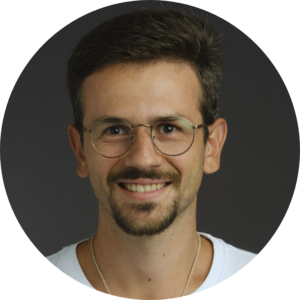 Evripidis Gkanias is a post-doctoral Research Associate at the University of Edinburgh, School of Informatics, and the University of Groningen, Faculty of Science and Engineering. He is interested in bio-accurate artificial intelligence and information theory, and he currently studies the effectiveness of different forms of working memory constrained by insect neuroscience and nanotechnology hardware, aiming to build an anatomically-accurate polarised light compass circuit.
Evripidis Gkanias is a post-doctoral Research Associate at the University of Edinburgh, School of Informatics, and the University of Groningen, Faculty of Science and Engineering. He is interested in bio-accurate artificial intelligence and information theory, and he currently studies the effectiveness of different forms of working memory constrained by insect neuroscience and nanotechnology hardware, aiming to build an anatomically-accurate polarised light compass circuit.
PhD Bio-inspired Robotics and Autonomous Systems, School of Informatics, University of Edinburgh, 2018–2022
MSc Artificial Intelligence, School of Informatics, University of Edinburgh, 2015–2016
BSc (Hons) Computer Science, School of Informatics, Aristotle University of Thessaloniki, 2008–2013
 Roman Goulard
Roman Goulard
 Florent Le Moël is a post-doctoral Research Associate at the University of Edinburgh, School of Informatics. He is interested in insects’ spatial cognition and sensorimotor systems, and how their tiny, well-optimised brains can produce the wide repertoire of complex behaviours they display in their natural environment. He combines behavioural studies in the lab and in the field with computational modelling of the insect brain structures. He is now working on the GRASP project, aiming at characterising how ants tackle the problem of grasping various items.
Florent Le Moël is a post-doctoral Research Associate at the University of Edinburgh, School of Informatics. He is interested in insects’ spatial cognition and sensorimotor systems, and how their tiny, well-optimised brains can produce the wide repertoire of complex behaviours they display in their natural environment. He combines behavioural studies in the lab and in the field with computational modelling of the insect brain structures. He is now working on the GRASP project, aiming at characterising how ants tackle the problem of grasping various items.
PhD Neuroethology “Desert ants visual navigation: coupled behavioural and modelling approach”, Research Center on Animal Cognition (CRCA), Paul Sabatier University, Toulouse, France, 2018 – 2021
Masters Degree in Neuroscience, Behaviour and Cognition, Paul Sabatier University, Toulouse, France, 2017
Contact: flemoel — ed.ac.uk
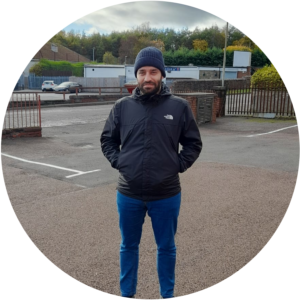 Mohamed Sorour is a senior research fellow at the School of Informatics, University of Edinburgh. He is investigating the ant’s mandibles from a structural point of view, as proven to be versatile, very capable grippers, and how to make use of such knowledge in advancing regular grasping applications serving human interests.
Mohamed Sorour is a senior research fellow at the School of Informatics, University of Edinburgh. He is investigating the ant’s mandibles from a structural point of view, as proven to be versatile, very capable grippers, and how to make use of such knowledge in advancing regular grasping applications serving human interests.
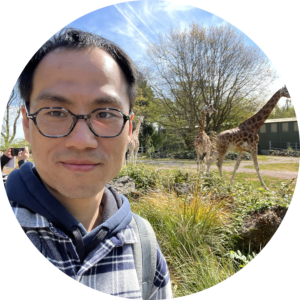 Yihe Lu is a post-doctoral Research Associate at the School of Informatics, University of Edinburgh. He is interested in understanding the mechanisms of rapid learning and memory consolidation in insect brains by implementing and testing insect-inspired artificial neural networks in navigational tasks.
Yihe Lu is a post-doctoral Research Associate at the School of Informatics, University of Edinburgh. He is interested in understanding the mechanisms of rapid learning and memory consolidation in insect brains by implementing and testing insect-inspired artificial neural networks in navigational tasks.
Research Associate, School of Psychology, Cardiff University, 2020 – 2022
Research Associate, School of Psychology, University of Nottingham, 2018 – 2020
PhD Complexity Science, Centre for Complexity Science, University of Warwick, 2014 – 2018
MSc (merit) Mathematics, Mathematics Institute, University of Warwick, 2013 – 2014
BSc (Hons) Mathematics and Statistics, Mathematics Institute, University of Liverpool, 2011 – 2013
Contact: yihe.lu\at/ed.ac.uk
 Cora Hummert is a post-doctoral Research Associate at the School of Informatics, University of Edinburgh. She is interested in understanding the mechanisms of depth perception in insects, particularly drosophila melanogaster, and their potential use in robotics.
Cora Hummert is a post-doctoral Research Associate at the School of Informatics, University of Edinburgh. She is interested in understanding the mechanisms of depth perception in insects, particularly drosophila melanogaster, and their potential use in robotics.
PhD Computational neuroscience, Institute for neuroinformatics, Ruhr University Bochum, 2016–2022
MSc cognitive science, Ruhr University Bochum, 2013–2016
BSc cognitive science, University of Osnabrueck, 2009–2013
PhD students
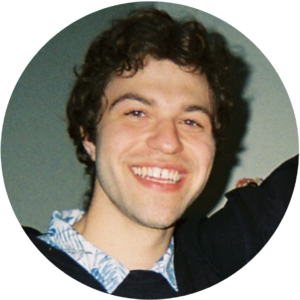 Jordan Watts is a PhD student with a focus on the mushroom body neuropil of Drosophila melanogaster. By modeling neural circuits using spiking neural networks and connectome data, he hopes to better understand learning mechanisms and dopaminergic synaptic plasticity rules in the mushroom body.
Jordan Watts is a PhD student with a focus on the mushroom body neuropil of Drosophila melanogaster. By modeling neural circuits using spiking neural networks and connectome data, he hopes to better understand learning mechanisms and dopaminergic synaptic plasticity rules in the mushroom body.
BSc (Hons) Electrical Engineering, Brown University, 2019 – 2023

James Garforth is interested in real time vision and navigation for robotics. He has previously worked on live scene reconstruction from the video data of a low-cost quadcopter and is currently investigating ways to improve robotic navigation in less structured environments such as forests. James is interested in the visual navigation capabilities of flying insects, such as the honey bee.
BSc (Hons) Computer Science and Artificial Intelligence, University of Edinburgh, 2007–2011
MSc (R) Robotics and Autonomous Systems, University of Edinburgh, 2014–2015
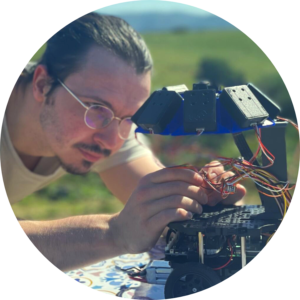
Robert Mitchell is a third year PhD student with an interest in multimodal cue integration in the context of insect orientation. His research primarily focuses on the Central Complex as a neural substrate for orientation cue integration, using ball-rolling dung beetles as a model species. Working in close collaboration with the Dacke Lab at Lund University, he uses a combination of insect behavioural experiments, neural modelling, and biorobotic experiments
to address his research questions.
MInf Informatics, School of Informatics, University of Edinburgh, 2014 – 2019
Contact: r.mitchell [AT] ed.ac.uk
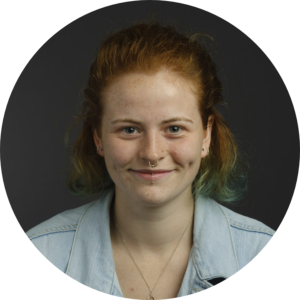 Persie Rolley-Parnell is currently in their first year of the CDT Course with the Edinburgh Center for Robotics, studying bio-inspired robotic manipulation. The biological inspiration for this project is harvester ants, and how they manipulate, pick up, and drag unknown objects; like food. From this, the aim is to apply this to robotic manipulation, and to improve the ability of robots to manipulate unknown objects with reduced computational power.
Persie Rolley-Parnell is currently in their first year of the CDT Course with the Edinburgh Center for Robotics, studying bio-inspired robotic manipulation. The biological inspiration for this project is harvester ants, and how they manipulate, pick up, and drag unknown objects; like food. From this, the aim is to apply this to robotic manipulation, and to improve the ability of robots to manipulate unknown objects with reduced computational power.
BEng (Hons) Robotics, University of Plymouth, 2015 – 2019
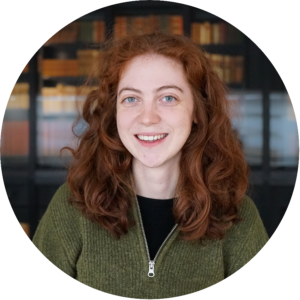
 Rana Khoury
Rana Khoury
 Aruna Raman
Aruna Raman
Collaborators
- Ander Mikkelsen
- Magnus T. Borgström
- Jesper Nygård
- Elisabetta Chicca
- Bo W. Laursen
- Paul Graham
- Bertram Gerber
- Matthieu Louis
- Holger Krapp
- Berthold Hedwig
- Stanley Heinze
- Xim Cerda
- Adam Stokes
Alumni
Former Research staff
- Jan Stankiewicz
- Daniela Pacella
- Benjamin Risse
- Michael Mangan
- Antoin Wystrach
- Konstantinos Lagogiannis
- Richard Reeve
- Jan Wessnitzer
- Jo Young
- William Lewinge
Former PhD students
- Le Zhu (2018-2023)
- Evripidis Gkanias (2018-2022) – Insect neuroethology of reinforcement learning
- Ioannis Pisokas (2016-2022) – Path integration system of insects: there and back again
- Jan Stankiewicz (2016-2021) – Using a quadcopter to model the visual navigation behaviours of flying insects
- Jane Loveless (2014-2020) – Modelling the neuromechanics of exploration and taxis in larval Drosophila
- Tianqi Wei (2014-2019) – Models for reinforcement learning and design of a soft robot inspired by Drosophila larvae
- David Wood
- Tom Stone
- Michael Mangan
- Theophile Gonos
- Georgios Petrou
- Mark Payne (2004 – 2010) – Co-ordinating Behaviours in an Insect Biorobot
- Finlay Stewart (2005 – 2009) – Modelling visual-olfactory integration in free-flying Drosophila
- Matt Szenher (2004 – 2008) – Visual Homing in Dynamic Indoor Environments
- Hugo Rosano (2003 – 2007) – Decentralised Compliant Control for Hexapod Robots: A Stick Insect Based Walking Model
- Ilias Alevizos
- Tim Chapman
- Darren Smith
(some) Former visitors
(some) Former MSc students
- Jan Stankiewicz (2016)
- Evripidis Gkanias (2016) – Data-driven adaptation of the evasion behaviour in fiddler crabs
- Theodoros Stouraitis (2016) – Robotcrab: the algorithmic approach
- Tom Appleyard (2015) – Building AntBot: a mobile-phone powered autonomous robot based on the insect brain.
- Jordan Sewell (2015) – Tracking ants in their natural habitat using only hand-held video data.
- Laurent Decamp (2015) – Tracking desert ants using visual cues
- Corey Engelman (2014)
- Shane Girish (2014)
- Daniel Diaz-Bejerano (2014)
- Matthias Lindor (2014)
- Alexandros Asthenidis (2010) – Cricket-Cyborg: an insect-controlled robot
- Ivan Cordon Medrano (2010) – Exploring Neural Models of Path Integration
- Vladimir Ivan (2010) – Sonar-based Simultaneous Localisation and Mapping for Academic Robotic Platform
(some) Former UG students
- Aleksander Khodshabashev (2014) – Ant Trackball and Robot.

